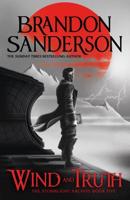Publisher's Synopsis
An unfortunate result of the eagerness of modern commentators to lay stress on Aeschylus as a thinker and religious poet has been the frequent neglect to observe The Libation Bearers, like Agamemnon, is full of suspense, action, and skillfully contrived surprise.Aeschylus was born at the religious center of Eleusis. His father, Euphorion, was of a noble Athenian family. In 499 B.C. Aeschylus produced his first tragedy, and in 490 he is reputed to have taken part in the Battle of Marathon, in which the Athenians defeated the Persian invaders.In 484 Aeschylus won first prize in tragedy in the annual competitions held in Athens. In 472 he took first prize with a tetralogy, three tragedies with a connecting theme and a comic satyr play. It embraced Phineus, The Persians, Glaucus of Potniae, and the satyr play Prometheus, the Fire Kindler. Defeated in one dramatic competition by Sophocles in 468, Aeschylus later won first prize with another tetralogy: Laius, Oedipus, The Seven against Thebes, and the satyr play The Sphinx. In 463 he won first prize with the tetralogy now known as The Suppliants, The Egyptians, The Danaids, and the satyr play The Amymone. In 458 he gained his last victory with the trilogy Oresteia. The date of another trilogy, the Prometheia, is unknown, but it was probably produced sometime between The Seven against Thebesand the Oresteia. Only 7 of the perhaps 90 plays that Aeschylus wrote are preserved. Aeschylus was acquainted with the Greek poet lon of Chios, and he may also have known Pindar, Greeces greatest lyric poet. Aeschyluss son and the descendants of Aeschyluss sister also wrote tragedies. The legend that Aeschylus stood trial for divulging the Eleusinian Mysteries but was acquitted on the grounds that he was never initiated may be simply a reflection of his religious environment. He was greatly influenced by the poet Homer, describing his own works as slices of Homer.

























